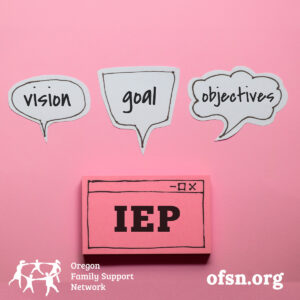Preparing for IEP Meetings: A Parent’s Perspective
Preparing for IEP Meetings: A Parent’s Perspective

Navigating the world of Individualized Education Programs (IEPs) can feel overwhelming, especially when you’re balancing your child’s needs, your own worries, and the logistics of school schedules. As a parent, I’ve learned that preparation is key—not just for making the meeting productive, but also for feeling confident in advocating for your child.
1. Know Your Child Inside and Out
No one knows your child better than you do. Take time to reflect on their strengths, challenges, and the strategies that work best at home. Make notes on specific examples that illustrate how your child learns, communicates, and responds to support. These real-life examples help the IEP team understand your child beyond test scores or classroom observations.
2. Gather and Organize Documentation
Collect reports, assessments, medical notes, progress updates, and any correspondence with teachers or therapists. Having these documents at your fingertips ensures you can reference them quickly and keeps discussions fact-based rather than solely anecdotal.
3. Set Your Goals
Think about what you hope to achieve in the meeting. Are you seeking additional support services, accommodations, or changes to the learning plan? Prioritize your goals so you can focus the conversation on what matters most for your child’s success.
4. Prepare Questions
An IEP meeting can move quickly, and it’s easy to forget what you wanted to ask. Write down questions in advance, such as clarifying specific goals, how progress will be measured, or what strategies teachers will use to support your child.
5. Practice Self-Care and Mindset
Advocating for your child can be emotional. Take a deep breath, remember that it’s okay to pause and ask for clarification, and know that your voice is valuable. You are your child’s best advocate, and showing up prepared makes a difference.
6. Follow Up
After the meeting, summarize key points, next steps, and deadlines in writing. This helps prevent misunderstandings and ensures everyone is on the same page moving forward.
Key Takeaways
IEP meetings are opportunities to collaborate with educators and specialists, not just to advocate for services. By preparing thoughtfully, you can approach the meeting with confidence, clarity, and a clear sense of your child’s needs. Remember: small wins matter, and your consistent presence in these meetings can make a world of difference in your child’s educational journey.
How OFSN Can Support You
Oregon Family Support Network (OFSN) is here to help parents and caregivers navigate IEP meetings and the broader educational system. We offer guidance, resources, and peer support to help you feel confident advocating for your child’s needs. Whether you need tips on preparing for a meeting, understanding your child’s rights, or connecting with other families who have similar experiences, OFSN provides a listening ear and practical support so you don’t have to go it alone.
We’re here to help you find the support you need. 1-833-732-2467
